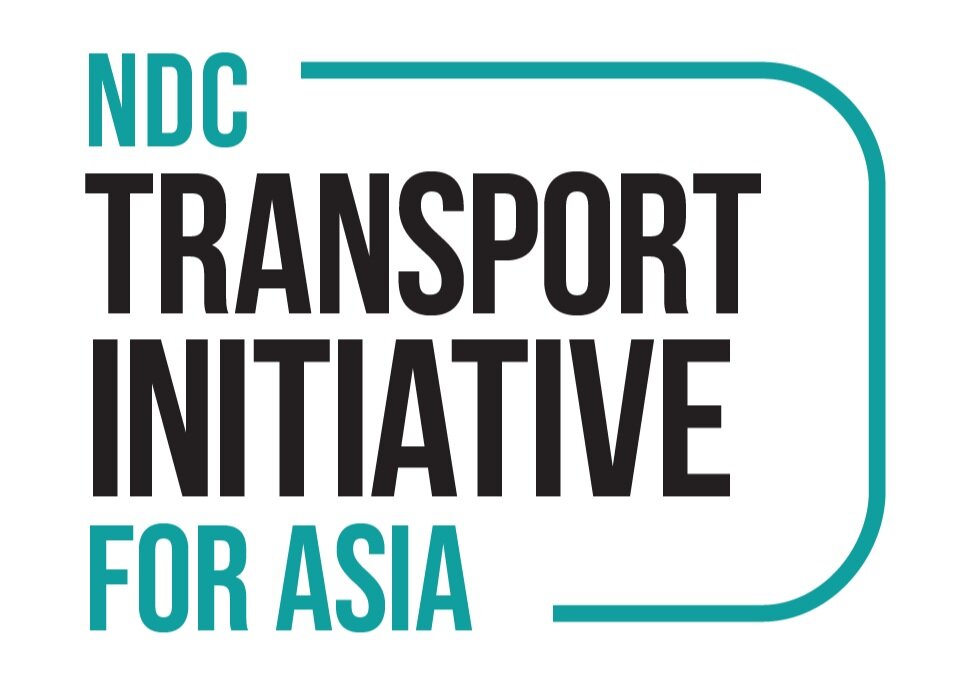The NDC Transport Initiative for Asia
SLOCAT is a proud partner of the NDC Transport Initiative for Asia (NDC-TIA) which provides policy and technical support for partners across Asia to shift the transport paradigm and decarbonise mobility for every person, in every sector. NDC TIA supports China, India and Vietnam. On the regional and global level, NDC TIA reaches out to additional Southeast Asia countries to share lessons learned, increase discourse on decarbonising transport and promote efficient, multi-stakeholder approaches coordinated between government ministries, civil society, and the private sector. Funded by the International Climate Initiative of Germany, NDC TIA is jointly delivered by Germany’s development agency GIZ, Agora Verkehrswende, International Council on Clean Transportation, International Transport Forum, REN21, SLOCAT and World Resources Institute.
Highlights
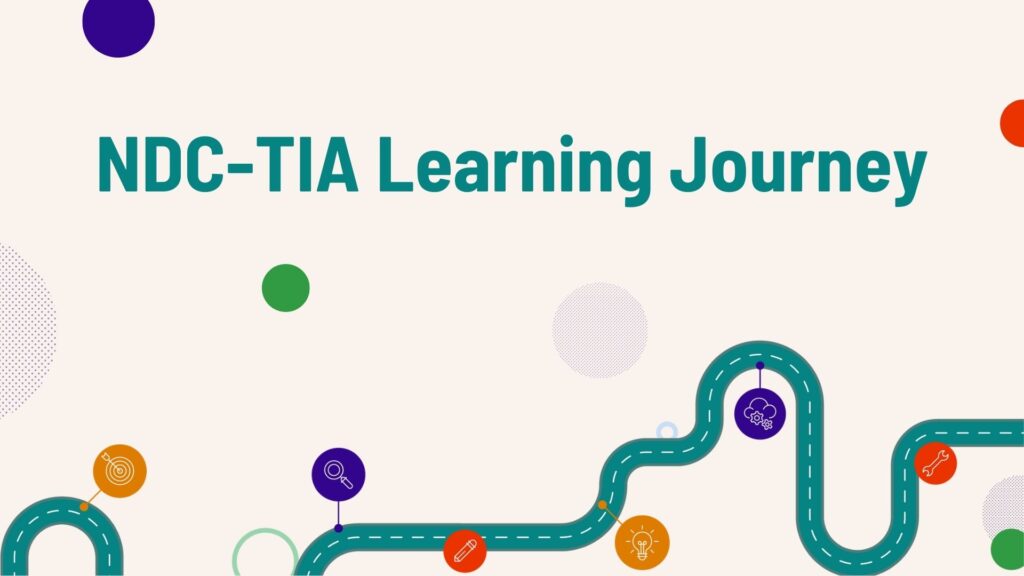
The NDC Transport Initiative in Asia Learning Journey aims to leverage the experiences of partner countries to transition from shared challenges to unified policy, finance, and technical solutions. It is a collection of different while complementary gatherings, culminating at NDC-TIA’’s conference in June 2024.
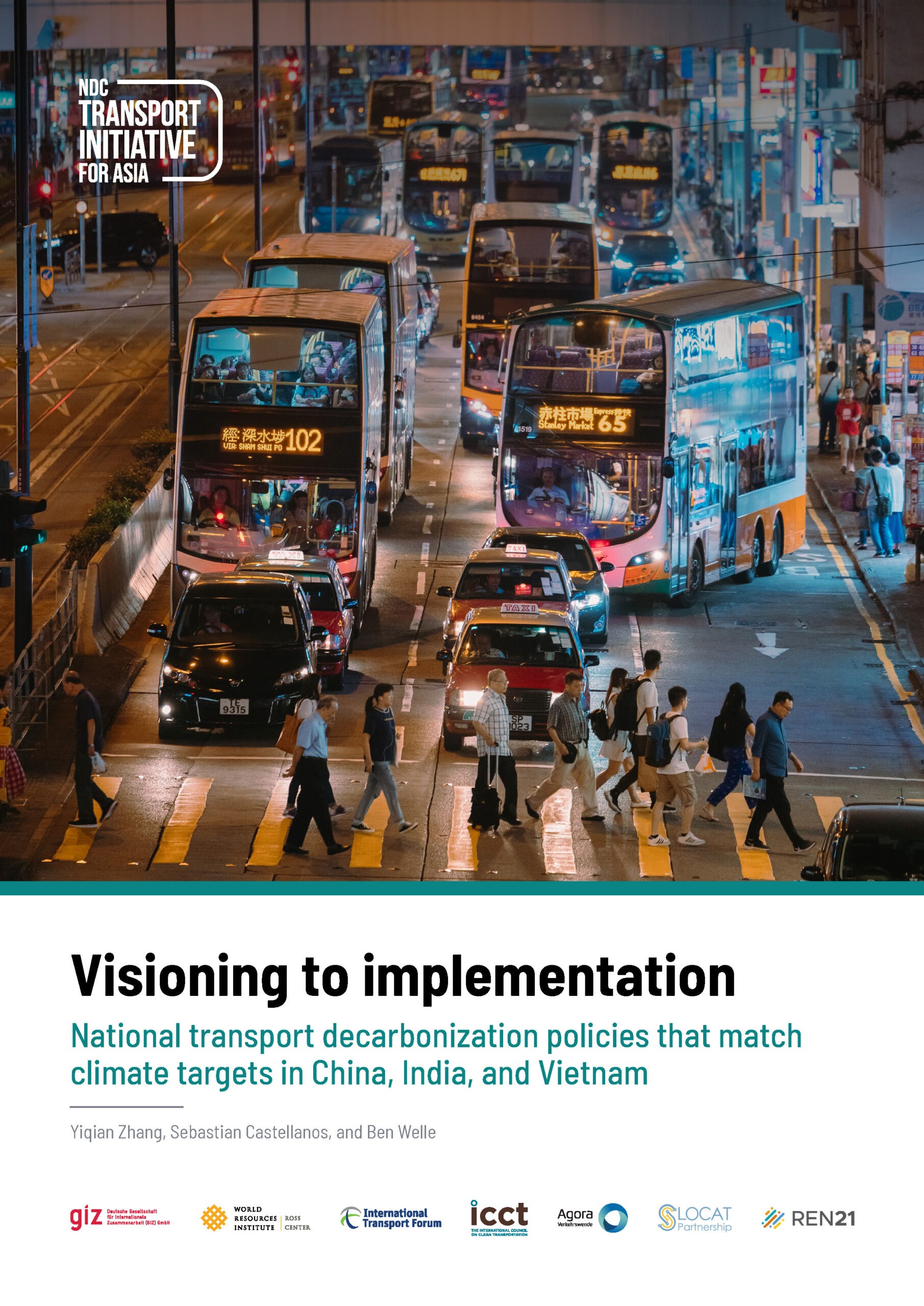
Under WRI’s leadership, SLOCAT contributed to the report “Visioning to Implementation”, which examines how China, India, and Vietnam are translating their climate commitments into national policymaking and leveraging them to accelerate transport decarbonisation. It also recommends seven strategies for the next round of NDCs to be submitted by the countries by 2025.
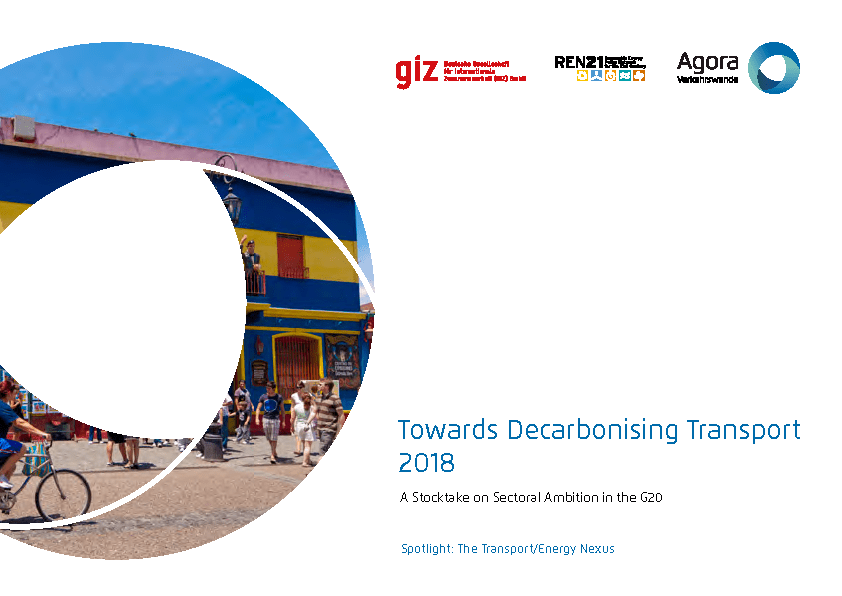
In light of India’s G20 presidency in 2023, and with emerging economies at the helm of the intergovernmental forum in 2022 (Indonesia), 2024 (Brazil), and 2025 (South Africa), this report seeks to support global discussions surrounding sustainable transport and the effort to achieve the goals stipulated in international climate accords, especially the Paris Agreement and the Glasgow Declaration. The report was first presented at a G20 working meeting in Panaji, the capital of the Indian state of Goa, on 19 July 2023, together with the public policy think tank of the Government of India NITI Aayog.
The document is an update of the report “Towards Decarbonising Transport 2018. A Stocktake on Sectoral Ambition in the G20”, published by Agora Verkehrswende, GIZ, and REN21. A consortium of seven leading research and international cooperation institutes, under the umbrella of the NDC Transport Initiative Asia, has contributed to the new edition of the report. Agora Verkehrswende completed the work with the support of the Deutsche Gesellschaft für Internationale Zusammenarbeit (GIZ), SLOCAT, WRI, ICCT, ITF, and REN21. The project was supported by the International Climate Initiative (IKI) of the German Federal Ministry for Economic Affairs and Climate Action.
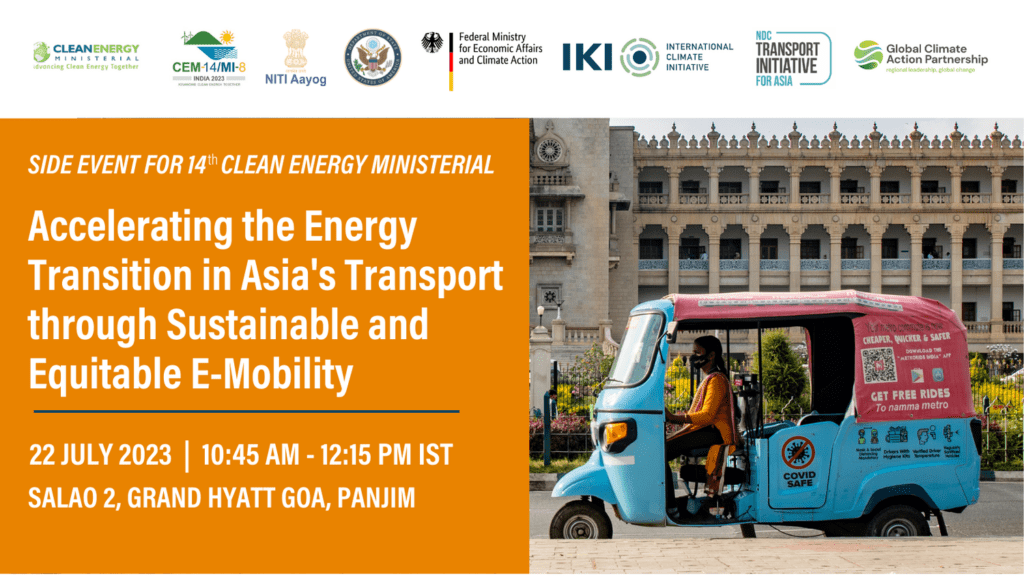
NDC-TIA at the 14th Clean Energy Ministerial (CEM14)
The CEM14/MI-8 side event, Accelerating the energy transition in Asia’s transport through sustainable and equitable e-mobility, brought together government representatives and practitioners from across the NDC-TIA and Leadership Group for Clean Transport in Asia (LG-CTA) network to discuss the development of transport decarbonization pathways and strategies in Asian countries. It was an enriching experience, with insightful discussions, impactful presentations, and meaningful networking opportunities. The roundtable included representatives from various organizations, including NITI Aayog, CESL, NREL, Department of Science and Technology (DST), India, Ministry of Infrastructure and Water Management, Kingdom of the Netherlands, DHL Group, OMI foundation, Agora Verkehrswende, ICCT, ITF, SLOCAT Partnership, WRI India, and GIZ.
